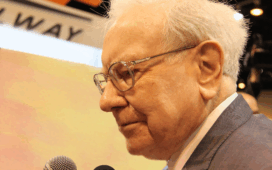eVTOL stands for electric vertical take-off and landing aircraft, a new category of aircraft designed for vertical take-off and landing using electric propulsion, potentially revolutionizing urban air mobility. eVTOLs are aircraft that can take off and land vertically, similar to helicopters, but use electric power instead of traditional combustion engines. They utilize electric motors and batteries for propulsion, allowing them to hover, take off, and land vertically without needing runways or long taxiways.
eVTOLs are envisioned as a key component of urban air mobility networks, potentially providing on-demand air taxi services, medical transportation, cargo delivery, and more. These aircraft offer the potential for quieter, more sustainable, and potentially fully automated air travel. Numerous companies are developing their own eVTOL technologies that could disrupt the future of this space and pave the way for what air mobility looks like decades from now.

Image source: Getty Images.
The global eVTOL aircraft market size was estimated at more than $2 billion in 2024 and is expected to grow at a compound annual growth rate of 54.9% in the coming years, reaching a potential valuation of $28.61 billion by 2030. Advancements in battery technology, including increased power, lighter weight, and faster charging times, are crucial for the viability of eVTOLs. North America and the Asia-Pacific regions, which are densely populated urban areas, are among numerous key markets for eVTOL aircraft.
Here are the five best eVTOL stocks to invest in right now if you want to capitalize on a slice of the action in this emerging industry.
Best eVTOL stocks
Five best eVTOL stocks to invest in
eVTOL companies are actively developing and testing their aircraft, focusing on urban air mobility, cargo transport, and potentially autonomous flight, with some aiming for commercial air taxi services and related infrastructure services. Many companies envision eVTOLs as a future solution for urban transportation, offering faster and more efficient travel than ground vehicles, and are already working with aviation authorities to obtain the necessary certifications and approvals for commercial operations.
Some companies are also exploring the use of eVTOLs for cargo delivery, potentially revolutionizing logistics. As eVTOLs become more prevalent, companies are also collaborating with municipalities to plan and develop vertiports, which are essentially landing pads for eVTOLs. Here are five top eVTOL stocks to consider if you want to invest in the future of this industry.
1 – 2
1. Joby Aviation
Joby Aviation (JOBY -1.41%) is a California-based transportation company developing eVTOL aircraft intended for use as a fast, quiet, and convenient air taxi service. The company aims to begin commercial air taxi flights, or Urban Air Mobility (UAM) operations, in late 2025 or early 2026, with a focus on launching in Dubai and potentially other locations shortly thereafter. Joby Aviation has made record progress on four of the five stages required by the Federal Aviation Administration (FAA) to certify its aircraft for commercial passenger use in the U.S. and expects Type Inspection Authorization flight testing to begin in the coming months.
Joby has a six-year exclusive operating agreement as Dubai’s air taxi service, with plans for a network of vertiports, including one at the DXB airport and others in Palm Jumeirah, Dubai Downtown, and Dubai Marina. Joby has been conducting extensive flight testing, including demonstrations in urban settings and with strategic partners like Delta (DAL -2.81%) and Uber (UBER 0.24%). Delta previously invested $60 million in Joby, with the potential for a total investment of as much as $200 million as milestones are met, and a seat on Joby’s board. The partnership aims to offer “home-to-airport” transportation services, initially in New York City and Los Angeles.
Delta is working with Joby to integrate their services, allowing customers to book and pay for flights through the Delta app. Delta is also collaborating with Uber to allow SkyMiles members to earn miles on eligible rides and deliveries. Uber invested $75 million in Joby and has increased its investment and deepened its partnership. Toyota (TM -1.24%) has invested significantly in Joby, including a $500 million investment in 2024, bringing its total investment to around $824 million. Toyota has a long-term agreement to supply key powertrain and actuation components for the production of Joby’s aircraft. Virgin Atlantic is one of the newer companies that will announce an air taxi service partnership with Joby Aviation once its air taxis are operational.
Joby Aviation is collaborating with the U.S. government, including the Department of Defense, to develop and demonstrate eVTOL aircraft technology, including training pilots and maintainers and delivering aircraft for logistics missions and research. The company has delivered its second aircraft to Edwards Air Force Base, Calif., and has five aircraft in its flight test fleet.
2. Archer Aviation
Archer Aviation (ACHR -2.18%) is another major player developing eVTOL aircraft, aiming to transform urban air mobility with its Midnight aircraft. The company is working towards commercial flights. The company Midnight aircraft is a piloted, four-passenger eVTOL aircraft designed for rapid back-to-back trips with minimal charging time between flights. Archer is in the final phase of the FAA’s Phase-4 type certification process.
Archer is also exploring potential applications for its hybrid aircraft platform in the defense sector, working with partners like defense technology company Anduril on future vertical lift use cases. The company has formed partnerships with Ethiopian Airlines, Abu Dhabi Aviation, and Palantir Technologies (PLTR 0.31%), to name several key partners.
Archer and Southwest Airlines (LUV -5.96%) have also established an agreement to develop operational concepts for air taxi networks, potentially offering Southwest customers an airport transport service. Archer has a partnership with Stellantis (STLA -1.07%), a multinational automobile manufacturer, where Stellantis will provide up to $150 million in equity capital to support Archer’s growth and collaborate on the development and production of Archer’s eVTOL aircraft.
Archer is currently working through certification with the FAA and other global aviation authorities to ensure its aircraft can safely integrate into the airspace. Archer has started production of its Midnight aircraft and plans to build as many as 10 aircraft this year to support ongoing certification testing programs and deployments with its key partners.
3 – 5
3. EHang Holdings
Headquartered in Guangzhou, China, EHang Holdings Ltd (EH -5.22%) is a leading UAM technology platform company specializing in autonomous aerial vehicles (AAVs) for passenger transportation, logistics, smart city management, and aerial media solutions. EHang is at the forefront of developing and commercializing AAVs for various applications within urban environments. The company develops and markets AAVs, including eVTOL aircraft and related command-and-control systems.
EHang is working to make safe, autonomous, and eco-friendly air mobility accessible to everyone through their AAVs. The company is also exploring the use of AAVs for delivering goods and packages as well as for tasks like aerial photography, surveillance, and emergency response. EHang’s EH216-S is a pilotless eVTOL aircraft designed for passenger transportation. The EH216-S was the first passenger air taxi to receive certification worldwide and is fully autonomous, meaning it does not require a pilot within the aircraft.
EHang has completed debut commercial flight demonstrations in cities like Guangzhou and Hefei, marking a step towards normalizing flights with the EH216-S for aerial sightseeing. EHang has conducted passenger flights in Thailand as it works to set up commercial flight operations there. The company also completed the Middle East’s first passenger-carrying flight on its autonomous eVTOL aircraft when it transported members of a local partner on a demonstration flight at the Abu Dhabi Emirates Falcons Aviation Club.
EHang’s EH216-S has obtained the world’s first type certificate, production certificate and standard airworthiness certificate for passenger-carrying pilotless eVTOL aircraft, which was issued by the Civil Aviation Administration of China. EHang’s EH216-S has not received FAA approval for commercial operations in the United States, and is broadly focusing its commercialization efforts in the Chinese market. However, in January 2020, EHang did conduct its first-ever trial flight of the EHang 216 in America with approval from the FAA.
4. Vertical Aerospace Ltd
Headquartered in Bristol, England, Vertical Aerospace Ltd (EVTL 0.89%) is a global aerospace and technology company aiming to decarbonize air travel with its zero-emission, eVTOL aircraft, the VX4. The company is currently focused on advancing its flight test program and achieving certification. Its flagship product, the VX4, is a piloted, four-passenger eVTOL aircraft designed for urban and regional air mobility.
The VX4 is a fully electric, sustainable mode of urban transport targeting cruise speeds of 150mph and a range of as much as 100 miles. It is designed for agile vertical take-off and landing that reduces travel times to minutes. Vertical Aerospace has launched a strategy called Flightpath 2030, which outlines its plan to achieve certification, production, and financial milestones to secure market leadership by 2030.
The company is working with the U.K. Civil Aviation Authority to secure permits for flight testing and commercial operations. Vertical Aerospace has recently achieved significant milestones in its testing program, including untethered, piloted thrustborne flight in Phase 2 of testing, and is working towards Phase 3 wingborne flight tests, which is a critical step towards certification. Vertical Aerospace has strengthened its financial position through a $50 million funding agreement and a $90 million upsized raise, which will allow the company to focus on advancing its flight test program and bringing the VX4 to market.
Vertical Aerospace plans to deliver at least 150 aircraft to its customers by the end of the decade, achieving significant milestones in high-quality, large-scale production. Vertical Aerospace has secured a significant number of pre-orders for the VX4, with customers across four continents, including American Airlines (AAL -2.32%), Japan Airlines (JAPSY 0.0%), and Bristow (VTOL 2.85%).
5. Boeing
Boeing (BA -1.54%) is known for its commercial and military aircraft manufacturing, space exploration, and defense systems, and it has a long history of innovation. Boeing is a leading manufacturer of commercial jetliners, producing iconic aircraft like the 737, 767, 777, and 787 families. Boeing-built commercial jetliners are in service worldwide, accounting for almost half of the world’s fleet. Boeing also offers a comprehensive family of freighters, carrying about 90% of the world’s cargo on its planes.
The company continues to develop new aircraft, including the 737 MAX and 777X and is exploring new technologies like electric and sustainable aviation fuels. Boeing designs and manufactures a wide range of military aircraft, including bombers and other defense systems. Boeing plays a significant role in space exploration, including developing spacecraft, satellites, and launch systems. The company develops and produces various defense systems, including weapons, drones, electronic warfare systems, and intelligence systems.
Its Defense, Space & Security division serves a diverse customer base, including the U.S. military and allied governments. Boeing is also involved in the development of electric vertical takeoff and landing aircraft, focusing on autonomous air taxis through its subsidiary, Wisk Aero, and has invested $450 million in the company to support its development and certification.
Wisk is focused on creating a fully autonomous eVTOL that can operate without a pilot onboard, with human oversight from the ground. Wisk is working towards FAA certification for air taxi operations, and the investment from Boeing will contribute to this process, but certification is probably still years away. Boeing’s primary business areas remain commercial airliners and defense/space programs, so investors who want exposure to an eVTOL company that isn’t a pure play might take a second look at this top stock.
Related investing topics
Should I invest?
Should I invest in eVTOL?
Whether or not you should invest in eVTOL stocks will depend on your personal preferences, risk tolerance level, and long-term goals for your portfolio. eVTOL stocks are generally considered volatile due to the nascent nature of the industry and the high-risk, high-reward potential of these companies.
eVTOL technology is still in its early stages, and companies are still developing and testing their aircraft. Investors are speculating on the future success of these companies, leading to significant price fluctuations. The regulatory landscape for eVTOLs is still evolving, and companies face challenges in obtaining necessary certifications and approvals.
The eVTOL market is projected to grow rapidly in the coming years, but there’s no guarantee that any particular company will be successful. Shares of eVTOL stocks are prone to experience significant stock price swings, both positive and negative, reflecting the volatile nature of the sector. Investor sentiment plays a large role in the price of eVTOL stocks and can be influenced by news, events, and social media trends.
The main challenges for eVTOLs lie in technology, safety, and acceptance by civil society. For investors who want to bet on the future of this fast-growing, emerging market, scooping up shares of one or more eVTOL stocks could have a place in a well-diversified portfolio.
FAQ
eVTOL FAQ
Are there ETFs for eVTOL stocks?
Some transportation and technology ETFs, like the ARK Space Exploration and Innovation ETF (NYSEMKT:ARKX), and SPDR S&P Transportation ETF (NYSEMKT:XTN), offer exposure to eVTOL stocks.
What is the difference between VTOL and eVTOL?
The key difference between VTOL and eVTOL lies in their propulsion. VTOL (Vertical Take-Off and Landing) encompasses any aircraft capable of vertical takeoff and landing, while eVTOL specifically refers to VTOL aircraft powered by electric propulsion.
How do eVTOL stocks compare to traditional aviation stocks?
The aviation industry is a well-established and mature sector with a large number of companies and a proven track record. Traditional aviation stocks tend to offer more stable growth than eVTOL stocks but with potentially lower returns. The market for traditional aviation is more saturated, with less opportunity for disruptive innovation compared to the eVTOL space. eVTOL stocks represent an emerging industry and could be poised for significant growth in the years ahead, but the risks are considerable.
What are the problems with eVTOL?
eVTOLs face numerous challenges, including regulatory hurdles, high costs, infrastructure limitations, and public acceptance. All need to be addressed for their widespread adoption.





